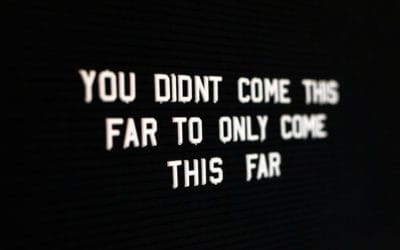The burnout rate in both practicing physicians and doctors in training is alarming. Why are doctors burning out? The problem seems to stem from decreasing autonomy, unhelpful/encroaching administrators, hospitals that won’t love us back, and the ever increasing financial burden of our student loans.
While you may think that physician burnout only impacts doctors, evidence shows that it unfortunately leads to bad medical care for our patients, too. Since the system seems bent on breaking doctors, are their individual solutions that we can seek on our own? What would you think if I told you that financial independence may have the power to save our physicians?
The Impact of Burnout
When medical students graduate from medical school, they have accumulated on average of ~$200,000 in student loan debt. That debt accumulates interest at rates typically between 5-7% over a three to seven year training paradigm. The average debt burden can often turn into $250,000 to $300,000 at the end of training.
I’ve work with residents with as much as $500,000 in student loans. That certainly impacts both their financial stress, wellbeing, and ability to learn!
The debt can seem insurmountable.
Further Reading: Learn more about how to perform a student loan refinance ladder here. If you are wallowing in debt, you might consider a student loan consult, too.
Compound this on top of the long hours, lack of sleep, the loss of autonomy, and the difficulties in life outside the hospital; and you’ll find a recipe that is ripe for burnout and moral injury.
If the above wasn’t bad enough, burnout rates and suicide rates are climbing, too. According to some, physicians have the highest rate of suicide of any profession. Dr. Pamela Wible has been able to compile a list of nearly 1,000 doctors who have killed themselves.
These catastrophic events impact more than just the physicians and their families. Medical errors occur more often in overworked and burned out physicians, too.
Why are Doctors Burning Out?
Burnout, first described in the 1970s by Herbert Freudenberg, is characterized as emotional exhaustion, depersonalization (impersonal or apathetic feelings towards others), and feeling a lack of accomplishment in your work.
Juxtapose this description with that of someone entering medical school: people who want nothing more than to help others, to be good at it, and to feel like their work is truly changing lives for the better in this world.
All the opposite characteristics of a burned out doctor. How does this transition happen? The answer is that medicine seems to have a dedicated road to burnout.
Studies have shown that the three leading determinants of satisfaction at work are autonomy, competence, and support at work (aka “relatedness”).
When the opposite occurs (lack of autonomy, feelings of incompetence, and lack of support) this causes burnout.
Autonomy at Work
Autonomy means self-governance, or independence. This is something many physicians today experience less and less with each passing year. Many doctors do not feel like the captains of their own ship. The ship is owned by bureaucrats, insurance companies, and hospital administrators who don’t know how to eat last.
We are expected to see more patients in less time. And when we deem a certain modality the appropriate route to diagnose or treat a patient, the insurance company must agree with us first. Otherwise, it won’t get reimbursed – and likely won’t happen.
It’s not just insurance companies, though. Patients also have demands.
We often feel the hate if we don’t write for that opioid prescription or give patients the antibiotics they demand for their viral illness. Patients have certain expectations they feel must be met (even if they aren’t the one with the medical degree).
Physician Support
Autonomy isn’t the only problem.
Doctors often can and do feel a complete lack of support from administrators who enforce rules without ever talking to the medical professionals on the front line.
More paper work, more documentation, better compliance. The list goes on and on.
Here’s a personal example from an email I received in the past from a person in medical billing and compliance. Her message said that I “forgot to attest for CPR” so that we could bill for it. That night the biller was referencing was a rough night for me. I had a young trauma patient die on the table.
There was nothing I could do to prevent it, but a loss of a young life is troubling no matter how it occurs.
A more appropriate email from the biller may have read “I am really sorry for the patient that you lost last night. That must have been tough. When you have some time, we do need to complete some documentation, including attesting for the CPR you administered.”
Nope, none of that. The point was made clearly. My job is NOT to be a human being that thinks and cares and cries. Yet, we wonder why doctors lack empathy. The lack of autonomy and support leads to utter dissatisfaction and burnout at work.
Is there a solution to save our doctors?
Financial Independence to the Rescue
Can financial independence (FI) be a part of the answer?
At first glance, you might think that I am making the point that “as long as doctors earn enough money” the problems listed above won’t bother them. That’s not true. In fact, for some, when they reach their FI number, it can magnify some of their discontent.
On the other hand, Financial Independence reliably provides some direct counter action to the causes of burnout mentioned above. It doesn’t fix all of the problems, but it does help with many of them.
I’ll mention three specific remedies that FI provides:
Remedy 1: A Way Out
Many physicians who get burned out do so because they feel stuck in the rat race. They feel like there is no way out. The financial burden is suffocating, and most doctors feel forced to work long hours to pay back their loans.
Financial Independence allows for increasing autonomy over our life. Maybe we pursue Partial FIRE and cut back to 70% of an FTE. This often allows enough of a reprieve for many doctors to fall back in love with medicine. We could also retire completely, though that’s not the message I normally preach.
Maybe we use that extra time to become human beings again who have hobbies like playing an instrument, writing, dancing, brewing beer, or playing sports.
Or maybe the additional time will let us be present for the people we love. It would be nice to put our children, spouse, parents, siblings, and friends first instead of putting them on the back burner.
In fact, a bigger picture of burnout suggests that physicians often lose their self-identity in their profession. FI allows us to get back to our roots and to re-examine what makes us who we are.
That 142nd email of the day can wait til our day off, which we know is coming if we have achieved Partial FIRE.
Remedy 2: Less pressure to keep up with the Dr. Joneses
In the tale of two doctors, there is Dr. Jones and Dr. EFI (Early Financail Independence). Far too often, doctors follow the example set by Dr. Jones. These doctors are notorious for being bad with money. In part, this is because we have certain expectations placed on us by society, others in medicine, and even ourselves.
We should buy (a.k.a. finance) the right house, the right cars, and the right school for our kids.
The counter-culture FI community can save us from this. FI is part frugality and part aggressive savings rate. When doctors are exposed to the frugality of the FI community, they feel a freedom to no longer keep up with the Dr. Joneses.
This freedom provided by FI allows them to avoid the catastrophic financial mistakes most doctors make when they finish training.
They realize that the right house, the right car, and the right school are the ones that help us accomplish the big picture goals that they have personally designed. Not what makes them look good to others (who probably don’t care about them anyway).
When they doubt themselves or want to learn more, they can turn to the vibrant and blossoming physician finance community. Here, they can find support for their ideas, which will provide some sanity.
The freedom that FI provides can release them from the shackles that bind them and their future!
Further Reading: If you need help figuring out your financial priorities, I encourage you to go through the Three Kinder Questions.
Remedy 3: The Support Yourself Fund
One of the other causes of burnout I mentioned above is the ever encroaching presence of administrators. They love to tell those of us on the front line how to do our jobs even if they have never done our job (or haven’t practiced in a decade and can’t do our job anymore).
Upon achieving financial independence, a certain amount of courage exists that simply wasn’t there when we first finished training. It’s part of joining the financial independence cult.
When administrators tell us how we are going to do our job and we find the change to be unhelpful for our patients or us, we can simply say, “No.” We aren’t going to do it.
There is real power in a Hell Yes Policy.
Replacing a physician costs a hospital between $250,000 and $1,000,000 depending on the physician’s experience, specialty, and abilities.
Diplomacy should always be used first. However, if diplomacy fails, simply telling an administrator, “Well, if that’s what you are making me do, then I’ll go ahead and turn in my two weeks notice” will end that conversation pretty quickly.
This FI fund helps you to support yourself when others won’t. There is power in saying no when someone isn’t valuing you or your time.
Financial freedom never felt so good!
Take Home
The FIRE movement has been good for many professions. While I don’t focus as much on the RE aspect of FIRE, I do feel that the FI aspect is crucial to the future success of medicine.
When the medical community learns the doctrines of FI, it provides a remedy to the lack of autonomy and support physicians receive. It also gives us the power to destroy the financial burden that plagues our doctors. FI helps free them to have time to find their self-identity, which is often lost during medical training.
So, while the rates of burnout, depression, and suicide continue to climb in the physician community, I look forward to fighting burnout with Partial FIRE.
Do you know a burned out doctor (or are you one)? Have you ever? How did financial independence fit into their solution to the problem? Leave a comment below.





Wonderful article!
My sister works in the medical field, specifically with younger cancer patients, and she often talks to me about the struggles with new administrative changes. In a field like medicine, where you are making personal connections with patients daily, I can only imagine how difficult it is to hear administrators tell you how to do your job/make more money for the hospital.
In regards to the student loan issues for doctors, I can’t speak on that because I have no idea of the mental fatigue that takes place with over $200,000 of debt. I can say though that this is simply becoming a problem for almost every industry that requires it’s young professionals to go through a four year college education.
For example, my alma mater has been raising tuition rates by roughly 6% annually, outpacing inflation and wage increases. How it got to this point, I have no idea. We have got to a point where students are turning down their life long dreams because they can’t afford to go into student loans, and refuse to take on debt that will take decades to pay off.
I am not sure how we got to this student debt crisis, and I am not sure how we change it for the better. One thing I do know is that we need to find a remedy soon, because I can only imagine how much college will cost my future children in the coming decades.
Completely agree about student loans. It’s gotten out of hand.
One school, NYU, is giving medical students a full tuition scholarship for every student. So, some places are starting to “get it.” Many others lag behind.
FI or FIRE definitely has the potential to reduce burnout. I have seen the effects already in my own life as I became financially independent and was able to cut down clinical hours to preserve my sanity.
Don’t think I have reached the “FU money” levels yet but that is because I have a daughter in the 8th grade and have no idea what college expenses will be by the time she gets there (plus I have her in private school).
I definitely have enough money already if I was an empty nester but that will be a ways down the road so just padding my portfolio tll then.
It can be incredibly powerful. Even once you get close to FI you probably have enough to call it “FU money.”
It’s just the amount necessary to take your stand and say what you think!
An irony of burnout is that my burnout did not peak until I was feeling FI. The thought process was along the lines of: I don’t need the money enough to put up with this crap!
It can get so bad that no amount of money could fix it! That’s for sure.
Glad you are doing better, and that you are sharing your story!
I’m finding FI and knowing there is a better option out there to be a mixed bag. Before I was perfectly content with the prospect of a 30 or 40 yr career. Now that seems rediculous. It is exciting and feels good to know that there is an awesome potential end point not too far down the road. But slowly making our way there can feel like a schlog!
Being FI definitely seems like an Rx for burnout. But I’ve noticed in myself that FI is making my day job a little harder to do and if I was already burning out then this FI business could worsen those feelings.
I’m finding that part of the FI journey is learning to enjoy it.
I completely agree. Needs to be part of the journey but not the end. Also part FI and part time work do wonders for the soul. As with anything, balance is key!
FI is, I assume, code for “independent private practice”.
I have been doing that for 13 years and I have had it. I am now looking to go back to being “just” an employee. I spend so much of my time administering my practice, dealing with billing and financial matters, that I am going out of my mind, even though I have a successful practice with 3 midlevel practitioners. Every stage of life has priorities. I went into private practice so that I could have a more flexible schedule for my kids. In NYC at least, I think the days of an independent practice that accepts insurance is quickly becoming a thing of the past. If one is not willing to be fee for service/ concierge based (I am not), independence may not be a viable solution any longer. Because I cannot find another doctor interested in sharing the burdens, I am now looking to sell
Financial Independence, yeah 🙂
I cannot imagine having to deal with all the beurocratic tape of owning your own practice. I am an employed academic physician and so I don’t have to deal with that side, though I do still have to deal with a different group of people (i.e. administrators) who tell me how to do my job and what my expectations are.
It sounds like you have a plan to get out of the muck and mire that you are stuck in. Good luck on your journey, my friend!
Could not agree more!
Financial well being is a huge part of overall personal well being. We are trained to think that paying attention to money or finance is dirty. But that’s usually the insecurities of other docs who lack financial well being. In fact I have found that as I have gained control of my finances I was able to focus more and enjoy being a physician more. It made me a better doctor!
The Prudent Plastic Surgeon
Hi,
It is always to have the FI as a buffer. One can have the option to say “No” and give the notice if the decision is not acceded to.
This is the power of achieving FI.
WTK